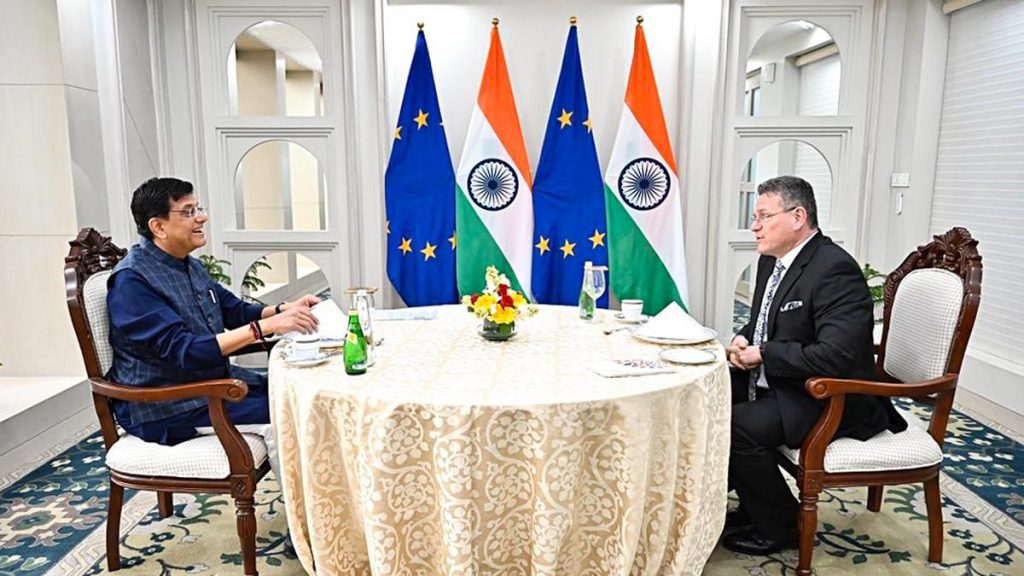
Union Minister of Commerce and Industry Piyush Goyal during a discussion with EU Trade Commissioner Maros Sefcovic on February 27, 2025.
| Photo Credit: X/Piyush Goyal via ANI
Amidst growing India-European Union cooperation in critical technologies, the India-Europe Resilience Forum (IERF) was launched on Friday (March 28, 2025) as a Track 1.5 Diplomacy initiative, bringing together policy experts and institutions. This effort, led by four organisations, aims to foster dialogue and collaboration between key stakeholders in India and Europe on shared, ‘non-traditional’ security challenges.
The IERF is spearheaded by the Institute of Peace and Conflict Studies and Hanns Seidel Foundation India, in partnership with the Centre for Social Research, and the Centre for Educational and Social Studies, Chanakya University (CU).
A joint statement issued at the conclusion of the EU commissioners’ visit to India, led by the President of the European Commission Ursula von der Leyen, emphasised the importance of intensifying cooperation between India and Europe in areas such as “trade and de-risking of supply chains, investment, emerging critical technologies, innovation, talent, digital and green industrial transition, space and geospatial sectors, defence, and people-to-people contacts.”
In this context, both sides agreed to further strengthen the resilience of semiconductor supply chains and promote collaboration in the high-tech sector. “To that end, they agreed to explore joint R&D in chip design, heterogeneous integration, sustainable semiconductor technologies, and technology development of advanced processes for process design kits (PDK), among others,” stated a release following the second Trade and Technology Council meeting.
Following the forum’s launch, an inaugural roundtable on Critical Raw Materials (CRM) convened experts to discuss potential collaboration, opportunities and challenges. Both India and the EU heavily rely on imports to meet their CRM demands, a sector largely dominated by China.
One expert cautioned against the politicisation of critical minerals, suggesting the G20 as an ideal platform for discussion, with Brazil highlighting the significance of supply chain resilience. Another expert noted the evolving CRM landscape, suggesting that India and the EU could leverage their respective strengths, citing India’s long-standing relationship with Africa as a potential example.
India became the 14th member of the Mineral Security Partnership (MSP) in June 2023, joining other nations, including the EU. The MSP aims to strengthen critical mineral supply chains to support economic prosperity and climate objectives by catalysing investments from governments and the private sector across the entire value chain, as the Government informed Parliament in a written reply in October 2023.
Published – March 29, 2025 09:42 pm IST


